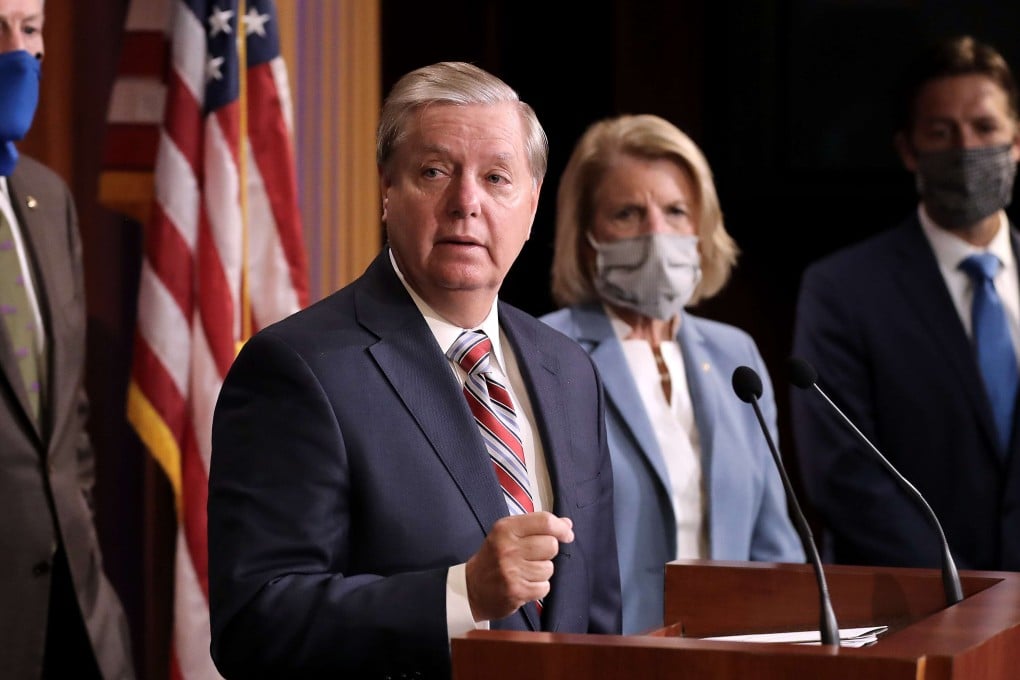US senators consider easing law so Americans can sue China over coronavirus
- Neither party shied away from condemning Beijing, but Democrats saved some of their harshest criticism for Donald Trump and his handling of the pandemic
- Current US law prevents Americans from filing suit against foreign governments, with a narrow list of exceptions

US lawmakers debated whether to make it easier for Americans to sue China for damages related to the coronavirus pandemic at a Senate Judiciary Committee hearing on Tuesday in Washington.
“At what point in time do we need to put on the table new ideas to stop a recurring event: pandemics coming from China?” said Senator Lindsey Graham, Republican of South Carolina and chairman of the committee. “Given the wilfulness, the deceit and the hard-heartedness, for lack of a better word, regarding the Chinese Communist Party’s handling of the coronavirus, I think now the time has come for us to put on the table new tools to deal with an old problem.”
“I cannot think of a more compelling idea than to allow individual Americans or groups of Americans to bring lawsuits against the culprit Chinese government for the damage done to their family, to our economy and to the psyche of the nation,” Graham added.
Senators from both parties expressed anger toward China for allowing what had been a local outbreak of a new virus to swell – because of censorship and negligence, they said – into a global pandemic that has now killed nearly half a million people.

10:01
Coronavirus: Can China overcome global mistrust to lead the fight against Covid-19
More than 120,000 of those deaths have been in the US. China’s official death toll has not reached 5,000.